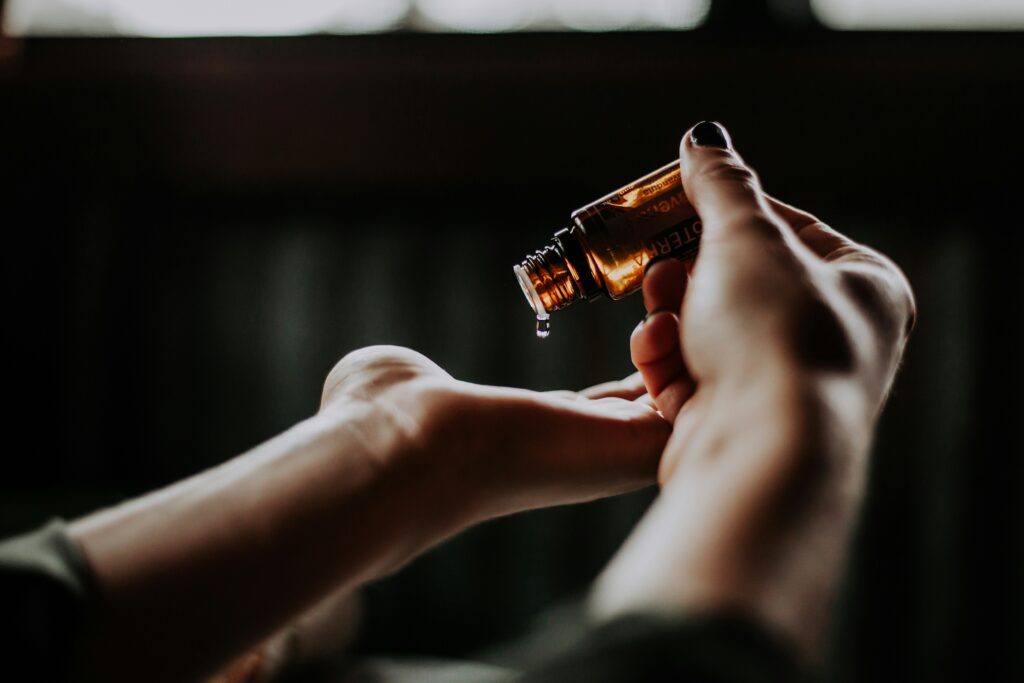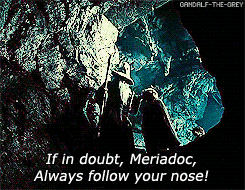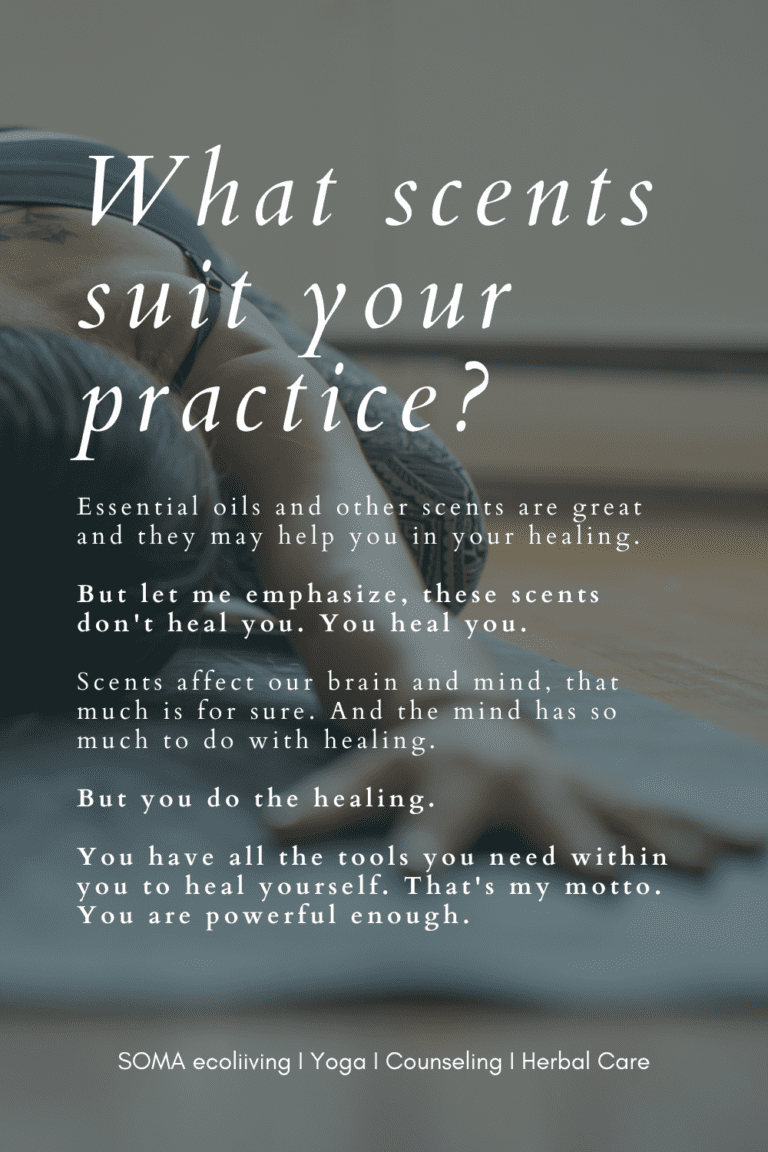I feel like I have been avoiding this subject for the longest time ever. I notice a growing trend of instant problem solving without considering individual needs or contextual differences. The other day, I saw a post on social media saying “Yoga Sutras in a Nutshell”. If you know me, you can imagine my dismay.
My hesitation in writing this article comes from the problem of overgeneralization and transactional nature of current modern society. I don’t want anyone to think that a certain essential oil will solve all of your problems. I will explain much more below. So here it goes.
I love scents
I love scents. I love conventional perfumes, or natural scents. I love candles and I love scent oils.
When I lived in Canada, there was a beautiful yoga boutique shop down the street that sold all the magical scents, roll-ons and high quality yoga clothing (which I could never afford with my feeble paychecks from teaching group yoga classes). But the scents there, oh those beautiful scents. There were essential oils I had never even heard of.
Somehow these scents healed me and grounded me. It gave me a break from my chaotic mind and took me to a mind palace of sort.

Turns out, scents invoke Earth element within us. Sense of smell grounds us, nourishes us, and allows us to return to the natural state. When you smell something, sometimes, you don’t know why but it takes you back to some place you are very familiar with. A certain scent can remind you of a distant memory. When you try to smell something, you can’t do it without staying true to your true self. You can’t, for example, keep your fake smile in front of someone you don’t like and smell. The moment you smell with the intention to smell, all of your disguise disappears and you are left with your authentic self.
That’s what scent does.
But does it heal us?
That’s the question, isn’t it? So many essential oil products and essential oil giant companies promise a healing power of botanical scents.
In some ways, yes, they do have a healing power. But my longer answer is a little different.
When you actually look through studies on essential oils, they are not very definitive. Yes, certain studies have shown that certain essential oils work for certain treatments (you see the number of times I used the word, certain). But a lot of the times, the studies are done by the essential oil companies or the number of participants are so small that it is difficult to replicate the results. In near future, I do hope that someone will do a research that is unbiased and his/her conclusion definitive. But for now, it’s a little unclear.
Essential oils are concentrated so in the case of aromatherapy where you breathes in the scent, the chemical compound in natural oils will reach the neural receptor and send signals to your brain. A good example is a room spray that is used in your bedroom. Lavender scent may improve your sleep because your brain is telling you now you can relax.
But the essential oil is used topically as in absorbed directly by the skin into the bloodstream, without going through your liver, it is a different story and may have adverse effect on your body.
On top of that, there are individual preferences as well. The same lavender oil may relax you but gives others a headache, perhaps.
So does it heal? My long answer continues.
No, it doesn't but you heal you
Yes, that’s my answer. Essential oils and other scents are great and they may help you in your healing.
But let me emphasize, these scents don’t heal you. You heal you.
Scents affect our brain and mind, that much is for sure. And the mind has so much to do with healing. So certain scents will trigger in your brain to relax or change your perspectives, or gives you permission to question your belief systems and you may start your healing process. But you do the healing.
You start smelling in womb
By 10 weeks old, a baby’s receptors to smell have already formed in their mothers’ wombs. And their senses of smell continue to develop till the age of around 8 years. That is why children may not remember the specifics of people, places or circumstances but they associate certain life events with smells.
My son, loves the smell of chimney. In Okinawa, we don’t have chimneys but when we go camping and smell that camp fire, he always says “it smells like at Papi’s (grandfather).”
That’s why your sense of smell allows you to go to places in your mind that wasn’t possible sometimes by your will but it can be triggered.
And the moment a place in your mind is triggered by the scent, there is an open window for your healing to happen. That’s why scent can help you heal but you do the healing.

Study of Life, Āyurveda helps you find that trigger
In the ancient Indian study of life called Āyurveda, the aim is the same as my SOMA YOGA’s aim, which is that we are all trying to return to the natural state. We don’t strive to become someone’s idea of perfect self. Our perfect self is the most natural authentic self.
In order to find that, Āyurveda has a system and it is called Dośa or Dosha.

According to Āyurveda, we all possess three constitutions. Now, let me stop you there. I am grossly overgeneralizing this and if you ever want a proper assessment, you should always seek a proper Āyurvedic doctor.
That said, we have one or two dominant constitutions. That means one or two of these dośas are more likely to go out of balance when stressed. These dominant constitutions allow us to understand our habitual patterns, defense mechanisms and what methods or ailments may best soothes us. For example, in our private yoga lessons, we use these dominant constitutions along with our discussions on Vedic Astrology, Jyotish as clues for your lesson plans so our lessons better suit your current needs.
When you determine which of these constitutions dominate your mind, you may be able to decide which scent suits your yoga practice.
But as I mentioned, you do the healing, which means you have all the right to trust your own instinct especially when it comes to scents (now that we know we’ve been practicing scents since we are 10 weeks old). So when your instinct for scents steers you in certain directions, please do trust it.
Here are my suggestions for each constitution
Please note that this is a very generalized description of each constitution. If your Ayurvedic doctor is not nearby, I would suggest letting your instinct (in this case, your nose) to be your guiding post.

So without further ado, let’s go through some suggestions on each constitution.
Kapha – Water/Earth Element
If you tend to have a hard time getting up in the morning, or feel sluggish, uninspired, or lethargic, you may be suffering from Kapha imbalance. Now everyone, time to time, experiences this kind of symptom as Kapha is a constitution of spring when the plants are still underground, accumulating a lot of water and the sun is just starting to warm the ground to wake them up. You know that lazy morning feeling? That’s Kapha.
What I suggest is adding a little spice to spice things up to give you a little zing:
- Eucalyptus
- Clove
- Fennel
- Camphor
- Rose (use sparingly)
- Bergamot
- Shekwasa (Okinawa citrus fruit, it gives you just the right amount of sweet and zing that goes so well with clove for example)
Meditation is already their element but needs a little more focus and vigor so I would start with a bit of movement or vigorous pranayama. But please note that it is worth considering that Kapha symptoms could be the result of Vāta derangement. So careful consideration is important.
Vāta – Air/Ether element
My teacher would point out that it is not exactly Ether but Space. Vāta is movement, it’s an alive thing. It loves to move, change, exist in the air. Because of this nature, Vāta individuals are adaptable, creative but highly anxious, can be flaky also, and have changeable minds. I happen to be one. You have no idea how many times I changed my logo or websites. Actually, one of the very few things that are consistent in my life is yoga. If you tend to worry, or have changeable minds, then you probably have a lot of Vāta. If you love vinyasa yoga and can’t imagine practicing the same thing over and over, then you, I’m afraid, need a total opposite. You must stay still.
For Vāta calming scents, I suggest roots:
- Vetiver
- Cedarwood
- Sandalwood (make sure it is harvested sustainably)
- Basil
- Sage
- Ginger
- Geranium (Rose Geranium will do nicely)
- Fennel
- Patchuli
At SOMA ecoliving, I make my own blends such as Dark Crystal or Meditation, or Night Forest are some of my favorite (and they are part of my 50% off Refill Products.)
Pitta – Fire/Water Element
Passionate, leader type tends to be Pitta dominant people. They are the charismatic people. No matter where they go, people tend to want to tag along with them. They have something to say in this world and if they’re not careful, they can be overpowering, harmful (out of passion) or forceful. They think much faster than the rest of us so it can be irritating for them to watch. They can eat anything anywhere in the world, too.
If you are this type, I would avoid hot, highly physically oriented yoga practice. It would only feed your fire till it becomes a bonfire. Instead, direct your naturally focused mind on meditation or pranayama or both.
For Pitta type, I suggest cooling and calming oils:
- Patchuli
- Japanese Peppermint (It gives you just enough sweetness not to be too sharp)
- Jasmine
- Geranium
- Lemongrass
- Yang-ylang
- Gettou (Okinawa Ginger Lilly is sweet yet cool)
Our Lucid Dreams or Liquid Smudge will do nicely.
Remember, these things are prompts
These items are prompts for your real healing work. If these scents remind you of your true power within to heal, that’s the aim. You have all the tools you need within you to heal yourself. That’s my motto. You are powerful enough. There are so many factors to determining what your habitual tendencies are and deciding what your course of action should be. Working with your yoga teacher, or Ayurvedic doctor is the best, of course AND trust your own instincts, too. When in doubt, try out scents, then take a step back to reflect on it (study your scent even i.e. what does it represent? What flowers or roots, do you know what they look like?) and try again. I am always happy to give you my two cents on it, too.

